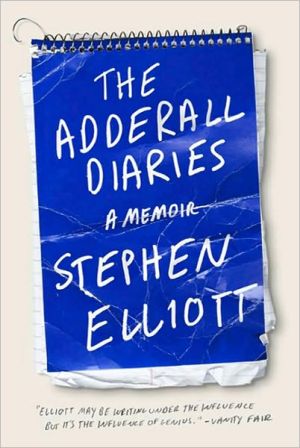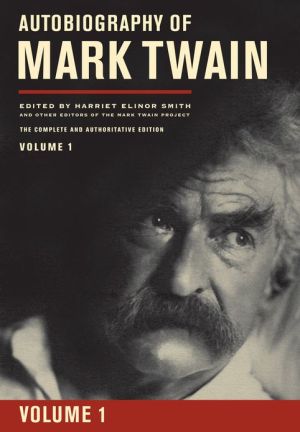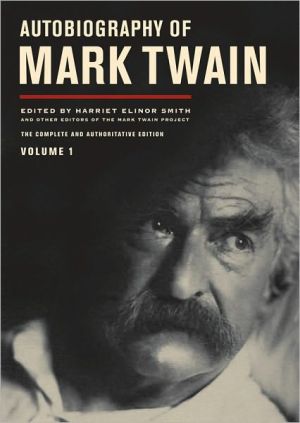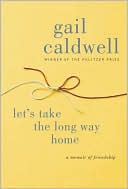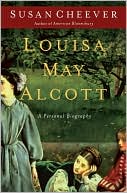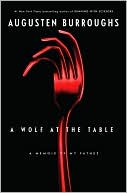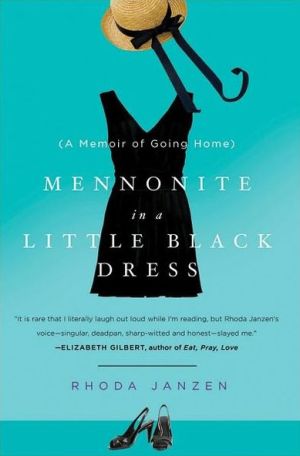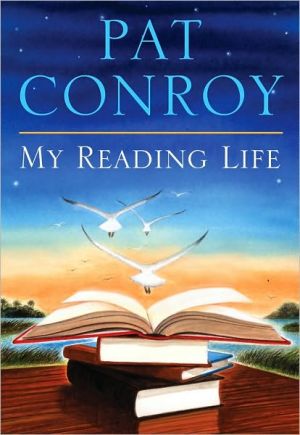The Adderall Diaries
In this groundbreaking memoir, Stephen Elliott pursues parallel investigations: a gripping account of a notorious San Francisco murder trial, and an electric exploration of the self. Destined to be a classic, The Adderall Diaries was described by The Washington Post as “a serious literary work designed to make you see the world as you’ve never quite seen it before.”
Search in google:
In this groundbreaking memoir, Stephen Elliott pursues parallel investigations: a gripping account of a notorious San Francisco murder trial, and an electric exploration of the self. Destined to be a classic, The Adderall Diaries was described by The Washington Post as “a serious literary work designed to make you see the world as you’ve never quite seen it before.” The Barnes & Noble Review We're living in a time of doubt and cynicism, knowing we shouldn't believe the choreographed confrontations on "reality" TV shows but buying into the carefully edited dramas anyway. The problems of veracity even extend to our bookstores -- once places where we felt we could trust the neat divisions between the fiction and nonfiction sections, but which now seem to hawk their wares at any moral cost. It has become increasingly harder to read autobiographies -- those books touted by publishers as "true" by every dictionary's definition of the word -- without feeling like we're swallowing a large pill of skepticism.
THE ADDERALL DIARIES\ A Memoir of Moods, Masochism, and Murder \ \ By Stephen Elliott \ Graywolf Press\ Copyright © 2009 Stephen Elliott\ All right reserved. \ ISBN: 978-1-55597-538-8 \ \ \ \ Chapter One\ May; Golden State; Suicidal Thoughts; A Year without Speed; Floyd Mayweather Comes Up Short; "Your Guy Just Confessed to Eight Murders"; Lissette; The Part about Josie \ It's May 4, 2007, the morning after the Golden State Warriors won the first round of the NBA playoffs against a Dallas team that was supposed to be one of the best ever to play the game. I'm not thinking about murder confessions.\ I'm taking Adderall, a Schedule D amphetamine salt combo, emptying the time-release capsules into glasses of orange juice, trying to break down the casings surrounding the amphetamines to see if I can get all the speed at once. I swirl the juice, press against the beads with the back of a spoon. I take five milligrams at eight, five more at noon. My roommate is gone. He left his door open and his computer sitting on the floor and I shuttle back and forth between his room, where I pass hours playing cards online, and my room, where I stare out the window and struggle to write something and then give up and go back to his room and play some more cards. It's a lonely, pointless existence, but that's what happens.\ I head to a party at a small publishing house in the Mission. All the kids arethere, eating cake and bean dip and drinking beer. It's 5:00 and they're off work. One girl wears bright red pants that come to her rib cage. She's just back from Germany and says everybody in Europe is wearing these kinds of pants.\ I talk with Doug and Brent about the Warriors' run, how they barely even made the play-offs.\ "I have the Chicago Bulls DVDs at home," Doug says. "I watch the games of the nineties over and over again. It helps me relax. You know the best player on that team wasn't Michael Jordan? It was Scottie Pippen. Scottie could dunk from the free-throw line at any time. He just elevated, and it was done."\ I know what he's talking about. I lived in Chicago all those years. I remember the play-offs against New York, Scottie Pippen flying into Patrick Ewing like a warhead destroying a mountain. Of course it was Jordan, and to a lesser extent Phil Jackson, who enabled Pippen to do what he did. He was never any good after he left the Bulls. He had his payoff, his championship rings, his millions, the rest no one will ever know.\ I feel ready to kill myself.\ After the party I stop at the café. There's a girl from the writing program there, one of the new fellows. She's young, with bright red cheeks and a mop of healthy brown hair. She says she had been somewhere and heard someone say my name. She says it bitterly.\ "I'm famous," I say. "Which is why I have so much money. Women follow me everywhere." But I'm joking. I don't have any money. I've had writer's block for almost two years.\ I go home and start drinking. By midnight it's done. I'm asleep on the couch, beneath an eight- panel collage my ex-girlfriend Lissette made for me. She made it while she was still living with her husband in a little house on the other side of the Bay, before our relationship broke apart her marriage. Each panel is two feet high and eighteen inches wide and comprised mostly of fetish models cut from mainstream magazines: women in gas masks, men on operating tables stuck full of hypodermic needles. Glossy pictures glued on black cardboard, peeling at the edges. It's the only decoration I have. The collage brought us back together for a while but in the end it was the unfinished work of a child, an accurate description of us both.\ I have two roommates who won't be coming home. We live in a large, cheap apartment in the outer Mission with strange gray carpet and a view of the water reclamation plant on a hill nearby. So instead of going to my room, I fall asleep on the couch and then eventually go downstairs where I toss and dream until morning when I wake up feeling scratchy but fine and I take ten milligrams of Adderall and hope I can do this without doing it again.\ My psychiatrist lives just down the street from me. I can walk there. I see her once a month, or once every three months, and she prescribes my pills. The pills make me crazy, I know that, but I don't see the alternative. It's really just speed, no different from the original amphetamine salts Gordon Alles injected in June 1929, and almost identical to the Pervitin used by German paratroopers in World War II as they dropped behind enemy lines in a state the British newspapers described as "heavily drugged, fearless, and berserk." It's the same stuff injected in high doses in the Haight Ashbury that Allen Ginsberg was talking about in 1965 when he said, "Speed is anti-social, paranoid making, it's a drag, bad for your body, bad for your mind."\ Without the Adderall I have a hard time following through on a thought. My mind is like a man pacing between the kitchen and the living room, always planning something in one room then leaving as soon as he arrives in the other. Adderall is a compound of four amphetamine salts. The salts, with their diverse half lives, metabolize at different rates, so the amphetamine uptake is smoother and the come down lighter. And I wonder if I'm not still walking back and forth in my head, just faster, so fast it's as if I'm not walking at all.\ My psychiatrist is tall and thin and her skin hangs loosely around her face. I like her quite a bit although I've never spent more than fifteen minutes with her. She works from her home and the door to a small waiting room is always open on the side of her house. There are magazines there, in particular ADD Magazine. The magazine is full of tips for organizing your life. There's even an article suggesting that maybe too much organization is not a good thing. Mostly though, it's about children. How to deal with your attention deficit child and the child's teacher, who might be skeptical.\ In the writing class I teach, a woman recently turned in an essay about her son who suffers from attention deficit. Her essay was written as a love letter and was completely absent of hate or envy or any of the things that make us human. It was missing everything we try to hide.\ "How are you feeling?" my psychiatrist asks.\ "Better," I reply.\ I had stopped taking the pills for a year, maybe more. Three weeks ago I started taking them again. When I quit taking Adderall I was still dating Lissette. I would go to her house in Berkeley during the day while her husband was gone and wrap myself around her feet while she worked. Or I would visit her at the dungeon where she worked on the weekends as a professional dominatrix. I would sit in the dressing room with the women and we would watch television. Lissette was the most popular and she would be off with clients most of the day. She would leave them in the rooms to undress. When she returned they would be kneeling on the floor, their naked backs facing her. She might walk carefully toward them, sliding the toe of her boot across the carpet. Or she might stand away from them, letting their anticipation build, as she pulled a single-tail from the rack. She loved to be adored and the best clients made her feel happy and complete. The walls were thin and I could hear the paddles landing on a client's back with a thud sometimes followed by a scream. When she was done she might come downstairs and sit on my lap for a while, and then we would go.\ I have a memory of Lissette in the dungeon, which was really just a four-bedroom basic Californian with a driveway and a yard in a quiet town north of Berkeley, near the highway. She's standing on the back of a couch, grabbing a toy from the top of a row of lockers. She's wearing panties with lace along the bottom and high heels, and we're all staring at the back of her thighs, amazed.\ When I was taking Adderall all I thought about was Lissette and when I stopped taking the Adderall I started thinking about other things. Lissette noticed and we broke up. Then we got back together, then we broke up again. Over the course of last year, after I had stopped, I often felt suicidal. I had time, but I didn't know what to do with it. I was a writer but I had forgotten how to write so I sat with my computer. I sat in coffeeshops or I sat at home or I sat at the Writer's Grotto, an old building near the ballpark where a group of authors share office space. I still had a bunch of pills left and occasionally I would take one, just to know that the writer's block was real. Then I lost all the pills when my bag was stolen at a bar on Twenty-second Street six months ago, and that was the end of that.\ If you asked me what happened this past year I'm not sure I could tell you. I could say I moved into this apartment on the edge of the city where I can hear children and dogs in the morning and I despise it. I could say I was with and not with Lissette, getting together and breaking up every couple of months. At one point I called her the love of my life. I could say honestly I started to write a novel every day. I could say I went on tour for six weeks with the Sex Workers Art Show and that a compilation of previously written essays and stories about my predilection for-my addiction to-violent sex was released to silent reviews.\ I could say I watched the first three seasons of The Wire on DVD and on Sunday nights I went to a friend's house nearby and ate dinner and watched HBO.\ I ran a reading series in the same bar where my bag was stolen. The series was part of a literary organization I founded to raise money for progressive candidates running for Congress in 2006.\ I edited an anthology of political erotica.\ I could say I did all these things and if it sounds like a lot I can assure you it isn't. I'm not married and I have no children. I have friends but they don't know where I am most of the time. I don't work. I live on money I made before, money that is almost gone.\ Last year I made $10,000.\ I live in San Francisco. Rents are going up.\ (Continues...)\ \ \ \ \ Excerpted from THE ADDERALL DIARIES by Stephen Elliott Copyright © 2009 by Stephen Elliott. Excerpted by permission.\ All rights reserved. No part of this excerpt may be reproduced or reprinted without permission in writing from the publisher.\ Excerpts are provided by Dial-A-Book Inc. solely for the personal use of visitors to this web site. \ \
Contents Prologue....................3 Book 1 Preliminary Motions....................11 Book 2 The Trial....................113 Epilogue....................207
\ Juliet WittmanThe Adderall Diaries should be a lurid work…Yet this is no potboiler, but a serious literary work designed to make you see the world as you've never quite seen it before.\ —The Washington Post\ \ \ \ \ Publishers WeeklyAs a writer stymied by past success, writers block, substance abuse, relationship problems and a serious set of father issues, Elliott's cracked-out chronicle of a bizarre murder trial amounts to less than the sum of its parts. Not long into the 2007 trial of programmer Hans Reiser, accused of murdering his wife, the defendant's friend Sean Sturgeon obliquely confessed to several murders (though not the murder of Reiser's wife). Elliott, caught up in the film-ready twist and his tenuous connection to Sturgeon (they share a BDSM social circle), makes a gonzo record of the proceedings. The result is a scattered, self-indulgent romp through the mind of a depressive narcissist obsessed with his insecurities and childhood traumas. Elliott is an undeniably good writer, but his voice has more to do with amphetamines than the author himself or the trial at hand. Elliott's frustration with himself is contagious; any readers expecting a true crime will be bewildered, and those familiar with Elliott (My Girlfriend Comes to the City and Beats Me Up) will find more (or less) of the same. \ Copyright © Reed Business Information, a division of Reed Elsevier Inc. All rights reserved.\ \ \ Kirkus ReviewsAn endlessly fascinating memoir by a profoundly courageous writer. Novelist and cultural critic Elliott (My Girlfriend Comes to the City and Beats Me Up, 2006, etc.) has plumbed his difficult life for his novels and short stories. A runaway at age 13, following his mother's death, he spent years in group homes around Chicago, engaging in petty crimes and developing addictions to heroin and other narcotics, rather than stay with his violence-prone sadistic father. As he began his latest book, Elliott was just resuming a daily regimen of Adderall ingestion. Off the drug, he lost the focus to write anything. Back on it and experimenting with means of enhancing its amphetamine-like effects, his mind still raced, but he was better able to channel his energies into writing down his rapid-fire thoughts. His new book, he decided, would be about a murder trial getting underway in San Francisco, where he had settled after a restless post-adolescence period. In the spring of 2007, Silicon Valley entrepreneur Hans Reiser was accused of killing his Russian-born wife Nina, whose body had yet to be found. The author's interest in the case was sparked by a confession of Reiser's best friend Sean Sturgeon, with whom Nina had an affair. The confession reminded Elliott of his father's odd story that he killed a man who had publicly humiliated him the year before Elliott was born. Despite the luridness of the subject matter, the author creates a refined, beautiful work of art. His themes-seemingly crime, murder, drugs and sadomasochistic sex-actually encapsulate the nature of truth, self, love and memory, and the limits of art to get at them all. Deserves a place on the shelf next to such classics ofuninhibited American introspection as On the Road and A Fan's Notes. Author tour to New York, San Francisco, Los Angeles, Chicago\ \ \ \ \ The Barnes & Noble ReviewWe're living in a time of doubt and cynicism, knowing we shouldn't believe the choreographed confrontations on "reality" TV shows but buying into the carefully edited dramas anyway. The problems of veracity even extend to our bookstores -- once places where we felt we could trust the neat divisions between the fiction and nonfiction sections, but which now seem to hawk their wares at any moral cost. It has become increasingly harder to read autobiographies -- those books touted by publishers as "true" by every dictionary's definition of the word -- without feeling like we're swallowing a large pill of skepticism. \ Stephen Elliott's The Adderall Diaries: A Memoir of Moods, Masochism, and Murder comes in the wake of "shamoirs" penned by authors purporting to be gay truck-stop hustlers, drug addicts refusing novocaine during a root canal, or (in the case of Misha Defonseca) a Jewish woman raised by wolves in the forests of Europe during the Holocaust. In the wake of James Frey's A Million Little Pieces and the concoctions of JT Leroy, Nasdijj, and Margaret Jones/Seltzer, we're wary, our eyes are jaundiced, and no amount of authors' notes saying they're taking liberties with names, places, etc., can heal our wounded trust. And if the antics of Frey & Co. mean little or nothing to you, you might have a hard time tunneling to the heart of Elliott's chronicle of what it means to be a memoirist in the Golden Age of Chagrined Liars.\ The "murder" portion of Elliott's title revolves around mild-mannered computer programmer Hans Reiser, who was accused of killing his wife, Nina, in 2006. Her body was never found, and incriminating evidence against Reiser appears to have been destroyed -- but those aren't the only complicating factors. Reiser's friend (and Nina's former lover) Sean Sturgeon comes forward and inexplicably confesses to eight unrelated murders. Elliott, who once had a tenuous connection to Sean, is intrigued by the case and starts to explore the contradictions of the two men and the woman who was the fulcrum between them.\ As he is drawn deeper into the mystery of Nina's disappearance and Sean's puzzling confession, Elliott is also trying to sort through his relationship with his father, who once claimed to have killed a man -- a crime for which Elliott has no tangible proof. Like the reading public, the author is adrift in an ocean of lies and half truths.\ That is the scaffolding of The Adderall Diaries. Over it, Elliott has draped an account of his struggles with depression, drug addiction, and writer's block. This book, he confesses, "is structured around the depths of my own psychic pain."\ One part true-crime and one part self-abasing "misery lit," The Adderall Diaries straddles a fuzzy border. If Hans Reiser's murder trial never fully grips us as it might in the hands of a Mailer or Capote, at least the account of the author wrestling with the pen never flags in intensity. Elliott is always aware of what he's doing, and there's a good argument to be made that The Adderall Diaries is a parody of the memoir genre. At the front of the book, after giving the standard names-have-been-changed-to-protect-identities caveat, Elliott admits, "Much is based on my own memories and is faithful to my recollections, but only a fool mistakes memory for fact." Later, he writes, "I wondered how much I had mythologized my own history, arranged my experiences to highlight my successes and excuse my failures. How far had I strayed from the truth?"\ Ah, truth, that slippery eel.\ In the past, Elliott's novels and short stories (including Happy Baby and My Girlfriend Comes to the City and Beats Me Up) have often injected autobiography into fiction. Now, it might be the reverse. In The Adderall Diaries, Stephen Elliott the author writes about Stephen Elliott the character, a tortured artist trying to find direction for his future and freedom from his past: "It's been a long time since I knew what I wanted, since I had something to strive toward. I keep floating, head poking above the waves, waiting for a purpose to arrive like a boat in the middle of the ocean." While Elliott's attention is intermittently focused on the Reiser case, the core of the book is his effort to rise above depression. The murder is just a piece of flotsam to which he can cling.\ It's like watching self-conscious performance art as Elliott labors to write a book that will eventually be called The Adderall Diaries (his friends advise him to "keep yourself out of it" and "write something that people want to read"). We also have a front-row seat for his daily consumption of amphetamines, his futile longing for companionship from a parade of lovers, his S&M fetish and the need to be dominated, and his "lonely, pointless existence." He writes of overdosing on heroin; of being gagged, tied to a bed, and spanked by women; of girlfriends pressing knives against his jugular. He dredges through the muck of his past -- humiliation at the hands of his father, shuttling between a series of foster homes, sleeping in abandoned houses, and trying to kill himself six times in one year. His father, described as a brutal, unstable man who was himself an unsuccessful author, once told a Chicago Tribune reporter that Stephen's stories about his childhood were distortions and publicly called his son "a bad seed" and "human garbage."\ Yes, there is a whiff of James Frey rising from the pages as Elliott relishes documenting his squalor. He's an admittedly pathetic figure who suffers from headaches, insomnia, obsessions, erratic decision making, and fingernails he has chewed until they bleed. If he doesn't keep himself dosed with Adderall, the volume knob gets cranked on his misery. "Without the Adderall I have a hard time following through on a thought," he writes. "My mind is like a man pacing between the kitchen and the living room, always planning something in one room then leaving as soon as he arrives in the other."\ Elliott is certainly adept at shaming himself on the page, but to what end? What purpose does hooking our attention with sordid details serve? Like seeing the red flags dotting A Million Little Pieces, we wonder how much of this we should accept as truth, how much we should compartmentalize as fabrication.\ Unlike others guilty of Freydian slips, however, Elliott seems to be in on the joke, fully aware that he's raising serious questions about the reliability of his narration:\ People often feel exploited when they find themselves in my work. It doesn't matter if I call it fiction; I know as well as they do that's not an excuse. I don't bother trying to defend myself. It's not defensible, it's just what I do. I spend years crafting a two hundred-page story, all the time my life sits next to me like a jar of paint.\ Elliott's loose-thread, careening style can irritate even the most patient readers, but something about his raw honesty keeps propelling us onward, despite the fact that at least one mystery of the book has already been answered: in our hands, we hold the proof that he succeeded in finishing The Adderall Diaries. As for the Reiser murder and Sean's eight-corpse confession, there are still nagging doubts by the time we reach the final page. In the end, this is less a book about a murder than it is a book about a man struggling to write a book about a man struggling to write a book about a murder. "I'm working on a book," Elliot tells us, "which is supposed to be about a murder, but I'm not sure where I'm going with it. To write about oneself honestly one has to admit a certain inconsistency and randomness that would never be tolerated in even the best of novels."\ Just as howls of protest greeted Capote's In Cold Blood, objecting to the author's playing fast and loose with the facts, The Adderall Diaries is bound to raise hackles. Stephen Elliott pushes even harder against the boundaries of creative nonfiction, taking us to a foggy territory that lies somewhere between truth and nothing-of-the-truth. Asking readers to resist the instinctive need to shelve literature in categories is a bold, smart move. Even if it's laced with lies, I was completely hooked by Elliott's memoir. And that's the truth. --David Abrams\ David Abrams's stories and essays have appeared in Esquire, Glimmer Train Stories, The Greensboro Review, and The Missouri Review. He's currently at work on a novel based in part on his experiences while deployed to Iraq with the U.S. Army.\ \ \
